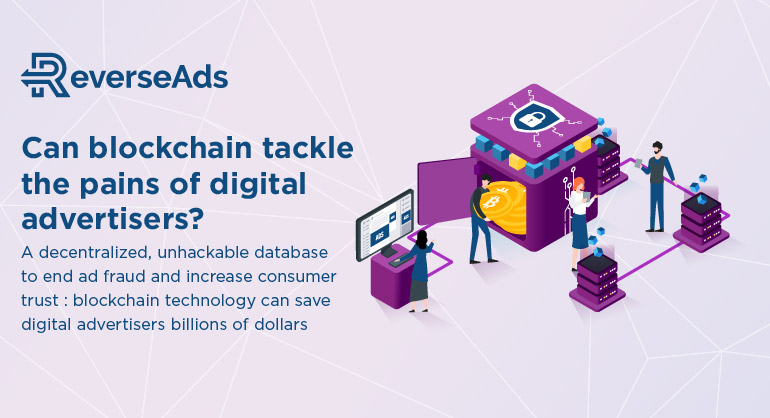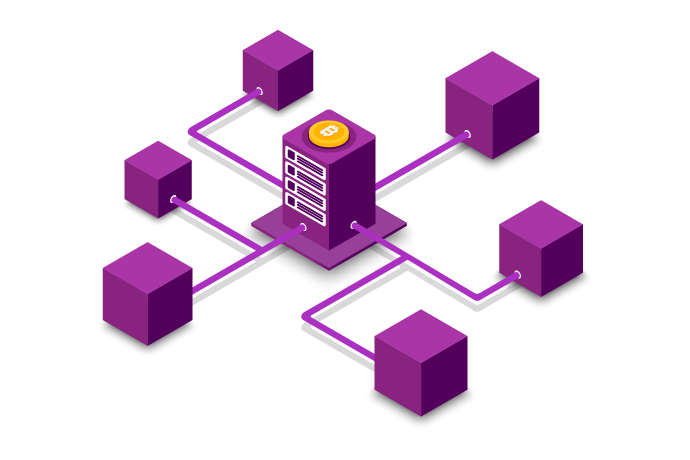Can Blockchain Tackle The Pains of Digital Advertisers

In the digital advertising industry, data is the product being sold and privacy and fraud are perhaps the biggest plagues affecting digital advertisers.
With the growing digitization of processes, comes a higher risk of fraud. On the one hand, programmatic advertising is very convenient for digital advertising companies, as it uses AI to buy and sell ads online. On the other hand, such automated systems lead to an increased risk of fraud: according to Statista, in 2019 over 40% of ad impressions served programmatically in the US were fraudulent, costing digital advertising companies over 19 billion USD in fraud losses. This figure is expected to rise to over 40 billion USD by the end of 2022, with mobile and video advertising as the highest risk channels.
How have digital advertising companies tackled this billion-dollar problem?
Being the risk of fraud so high, the impact on ad buyers and consumers’ trust has been just as significant, calling for innovation across the whole digital advertising chain.
Ad buyers and publishers have started to invest less in programmatic advertising over the years, and spend more time on manual tracking, which will automatically lead to lower efficiency if no solution is found. Moreover, big ad spenders have had to cut their budgets as they tried to tackle advertising fraud and transparency issues. As an example, in 2018 Adobe found that over 30% of their website traffic was generated by fraudulent sources such as bots and click farms, and has cut back on programmatic advertising, trying to find innovative solutions to the issue.
The End of Third-Party Cookies
The first step big companies have taken in this direction, was ending third-party cookies and implementing regulations to safeguard user privacy and enhance consumer trust. Third-party cookies allow adtech companies to place information on a user’s device, to then track their actions online and see what sites and content they are interacting with. Per se, these cookies are not meant to violate privacy or to cause any harm to consumers, but they have been unethically used by companies to track data without consent, leading to dissatisfaction and lack of trust.
At ReverseAds we have created an unparalleled cookieless tracking solution that doesn’t track user-level data, but rather campaign-level engagement tied explicitly to a keyword’s intent. Using client-side, first-party cookies, we read and write information specific to that user while storing this data anonymously. Our solution allows us to read engagement from a particular user across all modern browsers, without being affected by Apple’s ITS or Chrome Third Party Cookie blocking.
What Is The Next Step?
Blockchain is considered one of the most promising emerging technologies, with the potential to transform online businesses and services as we know them. Essentially, blockchain is a specific type of database that differs from a typical database in the way it stores information.
Blockchains store data in blocks that, once filled with data, are then chained together in chronological order. This data is secured using cryptography and can only be accessed by authorized users.
As opposed to a traditional database, where data is stored on a centralized server, in blockchain the data is shared across a network of computers that run on the same software, making it hard for anyone to hack or delete information without other users noticing. Decentralized blockchains are immutable, meaning that the data collected and entered is irreversible.
Blockchain is programmed to record anything of value, from cryptocurrencies to ads delivered or a hospital record. Different types of information can be stored on a blockchain, but the most common use so far has been as a ledger for transactions.

How can blockchain help solve privacy and fraud issues in digital advertising?
Blockchain technology offers a valuable solution to ad buyers, publishers and consumers. The purpose of blockchain is to create trust where there none existed before, offering a secure environment for advertisers and publishers to connect to their target audience, make safe transactions, and accurately track their campaign performance.
First of all, thanks to its multiple security layers and the immutability of the data entered, a blockchain network can prevent fraudulent players from entering the digital advertising ecosystem. Secondly, through a digital dashboard in near-real time, advertisers can track each ad’s placement, determine the legitimacy of its location and accurately check the performance of their ads on all channels.
Lastly, from the consumer’s perspective, extensive fraud in the digital advertising industry has caused a lack of trust and contributed to the creation of a poor user experience. Users are increasingly feeling like they do not have control over their personal data, and are hence reluctant to share more personal insights, making it extremely hard for advertisers to make informed business decisions.
Being a decentralized, unhackable database where everyone has a copy of the same database and can verify its history of ownership at any time, blockchain can tackle the lack of trust and transparency by providing a safe space to share data, and allowing marketers to monitor where and how their ads are being delivered. This will ensure proper ad engagement tracking, eventually leading to more accurate and complete attribution along with a more efficient ad spending overall.
These are only some of the advantages and benefits of adopting blockchain technology in digital advertising. Its potential to address privacy issues and fill the current transparency gap is enormous, and it is time for tech companies worldwide to take steps into this direction and innovate their advertising models.





